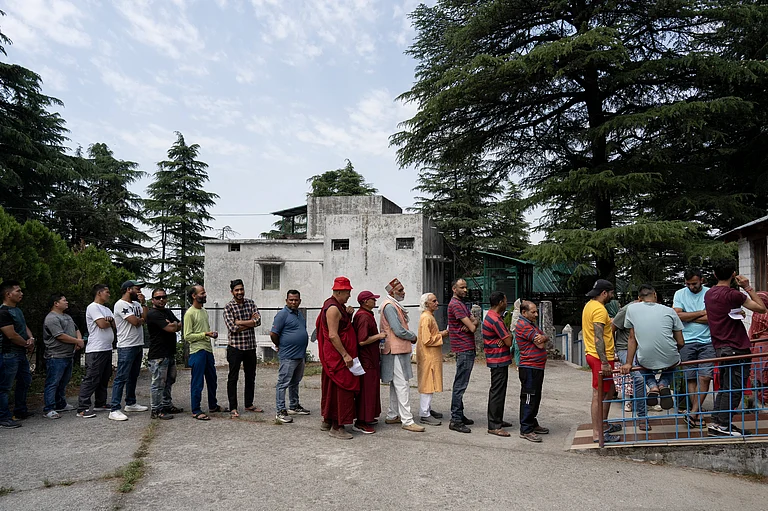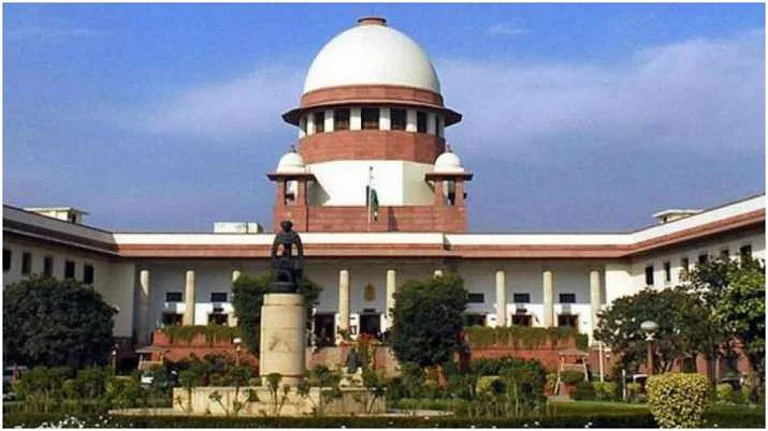A federal appeals court dismissed a lawsuit that challenged a controversial Tennessee law restricting drag show performances in the state.
The decision of the 6th U.S. Circuit Court of Appeals overturned a lower court ruling, which had deemed the law an unconstitutional limitation on free expression and had blocked its enforcement in parts of the state. Judges declared that Friends of George’s, the Memphis-based LGBTQ+ theater company which filed the challenge last year, lacked the legal standing to sue over the law.
Friends of George’s claimed the law’s broad language would affect their livelihoods by restricting artistic performances, particularly their drag-themed shows. As of Thursday night, the group had not yet released a statement.
The appeals court judges diverged from the lower court's view, asserting that the law was specific enough. They emphasized that the term "harmful to minors" was clear enough to dismiss Friends of George’s concerns.
"Friends of George’s has not alleged that its performances lack serious value for a 17-year-old. In fact, it insists the exact opposite. Its own witness, a member of Friends of George’s board, conceded that its shows 'are definitely appropriate' for a 15-year-old and would 'absolutely' have artistic value for a 17-year-old," the ruling stated.
Tennessee Attorney General Jonathan Skrmetti praised the ruling in a statement released Thursday afternoon.
"Tennessee’s Adult Entertainment Act has been consistently misrepresented since its adoption," Skrmetti wrote. "As a state overflowing with world-class artists and musicians, Tennessee respects the right to free expression. But as the Court noted, Tennessee’s ‘harmful to minors’ standard is constitutionally sound and Tennessee can absolutely prohibit the exhibition of obscene material to children."
State Representative Aftyn Behn, D-Nashville, a frequent advocate for LGBTQ+ rights, criticized the decision.
“This ruling is absurd and flies in the face of small government principles," Behn wrote. "It targets drag performers under the false pretense of protecting children, even though the court acknowledged that these performances are not harmful to minors."
Federal Judge Thomas Parker of the Western District of Tennessee had previously sided with Friends of George’s, stating that the law was "passed for the impermissible purpose of chilling constitutionally-protected speech."
Parker had noted the difficult position performers were placed in by the law’s vague wording.
"(The state) argues that they think (Friends of George’s) exhibits are not 'harmful to minors' under the AEA," Parker said. "But this would lead to (Friends of George’s) taking an enormous risk. It would have to eat the proverbial mushroom to find out whether it is poisonous."
Senior United States Circuit Court Judge Eugene Siler and Circuit Court Judge John Nalbandian affirmed the Thursday decision to dismiss the case, while Circuit Court Judge Andre Mathis dissented, calling the law an "unconstitutional content-based restriction on speech" and supporting Parker’s lower court ruling.
The ruling comes amid a surge of anti-LGBTQ+ legislation across the U.S. A record number of anti-LGBTQ bills were introduced last year, and more have followed in 2024. Advocacy groups and reports have noted that these bills, particularly targeting public education and healthcare for transgender youth, have made many states less inclusive.
The Human Rights Campaign reported that since 2015, Tennessee has enacted more anti-LGBTQ+ laws than any other state. Other states, including Arkansas and Florida, have enacted multiple anti-LGBTQ+ laws as well.
Drag performances have faced increasing hostility, with numerous incidents of bomb threats, protests, and cancellations. GLAAD documented over 160 incidents of anti-LGBTQ+ protests and threats targeting drag events since early 2022.






























